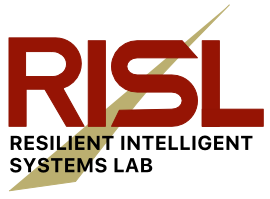Abstract
This paper introduces the open-source framework, GIRA, which implements fundamental robotics algorithms for reconstruction, pose estimation, and occupancy modeling using compact generative models. Compactness enables perception in the large by ensuring that the perceptual models can be communicated through low-bandwidth channels during largescale mobile robot deployments. The generative property enables perception in the small by providing high-resolution reconstruction capability. These properties address perception needs for diverse robotic applications, including multi-robot exploration and dexterous manipulation. State-of-the-art perception systems construct perceptual models via multiple disparate pipelines that reuse the same underlying sensor data, which leads to increased computation, redundancy, and complexity. GIRA bridges this gap by providing a unified perceptual modeling framework using Gaussian mixture models (GMMs) as well as a novel systems contribution, which consists of GPUaccelerated functions to learn GMMs 10-100x faster compared to existing CPU implementations. Because few GMM-based frameworks are open-sourced, this work seeks to accelerate innovation and broaden adoption of these techniques.
Presentation
Citation
@inproceedings{goel2024gira,
title={GIRA: Gaussian Mixture Models for Inference and Robot Autonomy},
author={Goel, Kshitij and Tabib, Wennie},
booktitle={2024 IEEE International Conference on Robotics and Automation (ICRA)},
pages={6212--6218},
year={2024},
organization={IEEE}
}
